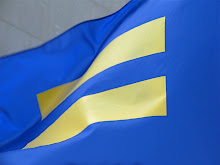 It seems odd to find spectacles in a graveyard. After all, what is it that the dead really can see? Or, as importantly, what would they want to see now that they are dead? Alas, nothing. But this all is part of the spectacle of body preservation. To embalm, bury and even entomb there are specific procedures, money, and a great deal of time required. There is, perhaps, no greater example of the spectacle than Lafayette Cemetery in New Orleans where this photograph was taken. Here opulence is not hidden. Featuring above-ground monuments and mausoleums (in the style of Parisian cemeteries), some are indeed simple, but by and large you are in awe at towering stone structures and tombs that make you want to uncover the mysterious lives the enshrined once lived. While all of the spectacle seems useless coming from someone who does not believe in an afterlife, who sees death not as an ascent but instead a decomposition, it is nonetheless beautiful in part because it seems so futile. While I may see no spiritual value in the cemetery, rays of sunshine in the late afternoon dance over the stones and cast shadows I have never imagined before. The beauty lies in this absurdity.
It seems odd to find spectacles in a graveyard. After all, what is it that the dead really can see? Or, as importantly, what would they want to see now that they are dead? Alas, nothing. But this all is part of the spectacle of body preservation. To embalm, bury and even entomb there are specific procedures, money, and a great deal of time required. There is, perhaps, no greater example of the spectacle than Lafayette Cemetery in New Orleans where this photograph was taken. Here opulence is not hidden. Featuring above-ground monuments and mausoleums (in the style of Parisian cemeteries), some are indeed simple, but by and large you are in awe at towering stone structures and tombs that make you want to uncover the mysterious lives the enshrined once lived. While all of the spectacle seems useless coming from someone who does not believe in an afterlife, who sees death not as an ascent but instead a decomposition, it is nonetheless beautiful in part because it seems so futile. While I may see no spiritual value in the cemetery, rays of sunshine in the late afternoon dance over the stones and cast shadows I have never imagined before. The beauty lies in this absurdity.As I pass by the spectacles on my way out, I know that they have no purpose, but it is precisely because they will sit there waiting, until taken or disrupted by weather, that they are illuminating. They are not for the dead. The dead cannot see any longer; their eyes have decomposed. They are but skeletons now, frames of their former glories and shortcomings. Instead, this human possession is there for the living, spectacles to preserve the spectacle of faith, reminding me of the lengths to which families go to provide a comfortable eternal life.


